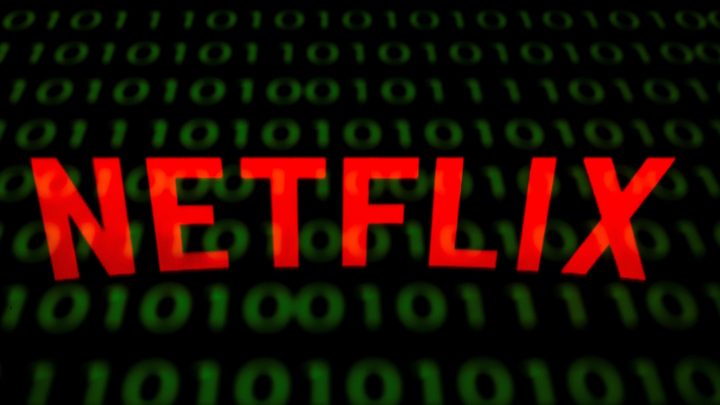
Could streaming giants start to clamp down on password sharing?
Share Now on:
Could streaming giants start to clamp down on password sharing?

Exchange an HBO GO password for your cousin’s Netflix password, sprinkle in a Fios cable login from your friend’s parents and suddenly you have a full TV package. Password sharing seems like a harmless crime to most streaming customers.
Streaming giants know you are doing it and don’t seem to mind too much despite the fact that they are losing billions.
To be precise, they lost an estimated $9.1 billion in revenue in just 2019, according to a recent report by research firm Park Associates and that number is expected to rise to nearly $12.5 billion by 2024. And the younger you are, the more likely it is that you are contributing to that revenue loss.
With numbers this big, it would seem that companies would be trying to change how subscriber accounts are managed, but nearly all the corporate heads of major streaming companies have said this is just the cost of doing business.
The problem is that restricting password sharing doesn’t have an easy solution. Streaming providers are developing different approaches to combat the practice without having to institute Draconian measures that could create subscriber backlash.
“I think we continue to monitor it,” said Gregory K. Peters, Netflix’s chief product officer, on the 2019 third quarter earnings call. “We’ll see those consumer-friendly ways to push on the edges of that, but I think we’ve got no big plans to announce at this point in time in terms of doing something differently there.”
Casual password sharing is described by analysts as when someone gives their login credentials to a close friend or a family member. As the industry moves into a new era of increased competition, casual sharing is not a big concern to newcomers Disney Plus and Apple TV Plus who are just looking to expand their market share.
“We’re setting up a service that is very family-friendly. We expect families to consume it,” Disney CEO Bob Iger said in an interview with CNBC before the Disney Plus rolled out. “We will be monitoring it (password sharing) with the various tools that we have.”
Is password sharing just marketing for streaming services?
By allowing a certain amount of account sharing, streaming companies maximize their exposure and acquire new subscribers.
“Potentially, it’s not necessarily just lost revenue. If you look at it as a marketing cost, there is potentially some benefit for it,” said Jon Giegengack, analyst at HUB Entertainment Research.
It’s baked into the cost of the subscription and a part of the marketing strategy, said Ross Benes, a streaming analyst at the research firm E-Marketer.
The benefit being more eyes on a show and more media buzz. Besides, this is how people are consuming content now.
According to a report by HUB, 64% of 13-24 year olds have given out an online service password to someone else. And 31% of all consumers have given their online TV password to someone who doesn’t live with them.
“There’s almost kind of a potpourri or a potluck approach to entertainment content, where you get together with a group of friends or people that you’re connected with online and you bring in the HBO NOW. I’ll bring the Netflix and between all of us, we put together a pretty comprehensive set of subscriptions to access all the good stuff that’s out there,” Giegengack said.
And of course there are only so many streaming services that customers are willing to pay for. As the market saturates with more online subscriptions to choose from and more consumers use streaming services to watch TV and movies, companies are increasingly spending more to compete.
One way to keep up is to raise subscription prices, as Netflix did this past year. Netflix did lose some subscribers as a result, but it is a way to increase revenue in the long-term. Although raising prices doesn’t directly address the underlying problem of password sharing, it does provide more revenue for content production.
A more direct way to combat password sharing is to lower the amount of simultaneous streams and user profiles. For now, Disney Plus offers four streams and seven profiles; whereas, Apple TV Plus offers six simultaneous streams per account. Netflix offers one, two, or four streams depending on the plan.
Decreasing streams encourages users to open new accounts as opposed to sharing one subscription. This could save companies from directly raising prices or having to confront users who are exploiting the system by over-sharing their login credentials.
Another strategy is tracking data and monitoring accounts using geolocation.
Disney and Charter Communications agreed to work together to root out unauthorized users earlier this past year. Their plan consists of monitoring IP addresses of Disney users and matching them to the IP addresses of broadband Charter customers. The idea is to more accurately identify how many people are using each account.
Streaming security firm Synamedia developed a way for streaming content providers to pinpoint which users are over-sharing or have even had their credentials stolen. It monitors usage data by content and location which can help companies determine how many different people might be using a specific account.
“The casual sharer is less of the problem and this technology is a way to monitor it,” said Jean-Marc Racine, chief product officer & general manager EMEA at Synamedia.
For example, if a college student in Chicago is using an account registered to a user in San Francisco and the software detects that the two users are watching “Stranger Things” at the same time, then, Netflix could flag the account.
In theory, the account could be shut down for violating terms of service. But more than likely, the data will be used to upsell the user into purchasing more streams or offering a new account, Racine said.
Geolocation and IP monitoring allows companies to adapt their terms of service according to data usage. Netflix developed their own open-source Security Monkey to monitor, alert, and report anomalies on cloud services, but it is not used as a cybersecurity measure.
Content piracy is the real enemy for streaming companies
Casual sharing does not account for the whole $9 billion loss of revenue.
The major concern for cyber security companies like Synamedia is how password sharing can turn into true content piracy ‒ stealing streaming shows and movies and reselling them for profit.
If you know where to go on the internet, there are entities that steal whole databases of user login credentials and resell them to content pirates on the dark web, said Steve Hawley who authored the Parks Associates report.
Piracy is where the big losses are for streaming services, but password sharing is not going away either. As the streaming wars get more brutal, companies might look at the lost revenue in password sharing differently.
“Right now they’re in this competition to grab as much market share as they can. But eventually, they probably will have to do something,” Benes said.
What remains to be seen is how much money companies are willing to let float away before they dam up the stream.
There’s a lot happening in the world. Through it all, Marketplace is here for you.
You rely on Marketplace to break down the world’s events and tell you how it affects you in a fact-based, approachable way. We rely on your financial support to keep making that possible.
Your donation today powers the independent journalism that you rely on. For just $5/month, you can help sustain Marketplace so we can keep reporting on the things that matter to you.


















